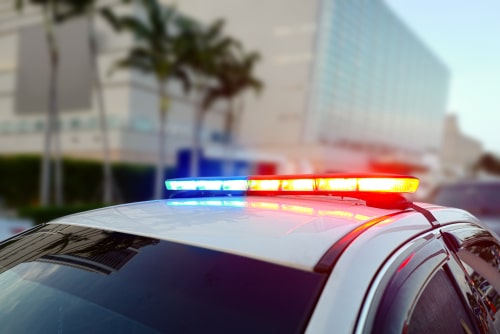What Happens After a Second Offense Traffic Violation
 If you have been cited for a second traffic violation, you may be facing harsher penalties than for a first offense. It is important to understand the potential consequences and your legal options. An Illinois lawyer may be able to help you with your second offense traffic violation.
If you have been cited for a second traffic violation, you may be facing harsher penalties than for a first offense. It is important to understand the potential consequences and your legal options. An Illinois lawyer may be able to help you with your second offense traffic violation.
Penalties Depend on the Type of Violation
The consequences for a second traffic offense depend on several factors, most notably the specific violation. Common moving violations that may result in enhanced penalties for a second offense include:
-
Speeding
-
Running a red light or stop sign
-
Improper lane usage
-
Following too closely
-
Failure to yield
-
Driving without insurance
For many of these offenses, a second violation will result in higher fines and court costs compared to a first offense. You may also have your license suspended for a longer period of time, especially if the second violation occurs within a certain timeframe of the first offense (often 12 to 24 months).
More serious violations like reckless driving, DUI, or driving on a suspended license carry even steeper consequences for repeat offenders. A second DUI in Illinois within five years is a Class A misdemeanor punishable by up to 364 days in jail, up to $2,500 in fines, a five year license revocation, and mandatory drug and alcohol treatment. Aggravating factors like a high BAC or causing an injury can elevate a DUI to a felony offense.
Impact on Your Driving Record
A second traffic violation will add points to your driving record. The point value depends on the offense, for example, minor violations are five to 20 points, while major violations are 50 to 100 points. Accumulating points can lead to higher auto insurance premiums. Getting three moving violations in a 12-month period also results in a suspended license.
Potential Defenses Against a Second Violation
If you have been charged with a second offense traffic violation, you still have legal rights and potential defenses, depending on your situation. A traffic defense lawyer in Illinois will examine all aspects of your case to determine the best approach. Potential defenses against a second violation include:
-
Challenging the legality of the stop: If the officer did not have reasonable suspicion or probable cause to pull you over, any evidence from the illegal stop could be suppressed.
-
Disputing the alleged violation: The state has the burden of proving you committed the traffic offense based on clear and convincing evidence. Your lawyer may be able to challenge the sufficiency of the proof against you.
-
Negotiating a plea agreement: In some cases, your lawyer may be able to negotiate with the prosecutor to reduce the charge to a lesser offense or have it dismissed in exchange for completing traffic school, paying a fine, or other requirements. This can help minimize points on your record.
-
Arguing for supervision: For certain offenses, the judge has the discretion to impose court supervision instead of a conviction. If you complete the terms of the supervision (e.g. paying a fine, doing community service, attending traffic school), the charge will be dismissed without going on your public driving record.
Contact a Grundy County, IL Traffic Violation Lawyer
Being charged with a second traffic offense is stressful, but you do not have to deal with it on your own. You can reach out to a Will County, IL traffic defense attorney who can assess your case, explain your options, and build the strongest possible defense. The sooner you have legal representation, the better your chances of mitigating the fallout of a second traffic violation and protecting your driving privileges. Call Law Offices of Jack L. Zaremba, P.C. at 815-740-4025 to start with a free consultation.

















